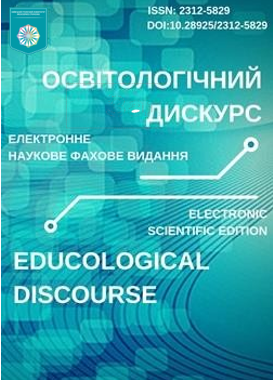Artificial Intelligence in Education: Use Without Violating the Principles of Academic Integrity
DOI:
https://doi.org/10.28925/2312-5829.2024.15Keywords:
artificial intelligence, artificial intelligence technologies, education, higher education students, academic integrityAbstract
The article substantiates the relevance of issues related to the development of artificial intelligence, which allowed to form a clear understanding of modern AI tools. The prerequisites for the emergence and features of artificial intelligence as an international product are summarized. The author analyzes current trends in the field of artificial intelligence technologies. A list of popular AI technologies is presented and the current state of application of AI technologies by higher education students is determined. The article presents the results of a survey of higher education students of the Faculty of Pedagogical Education of Borys Grinchenko Kyiv Metropolitan University. The peculiarities of the use of artificial intelligence technologies by higher education students are determined. The advantages and negative consequences of the use of artificial intelligence in the education system are considered. The key issues related to the ethics of using AI in accordance with the principles and norms of academic integrity are described
Downloads
References
Artiukhov, A., Vikhliaiev, M., & Volk, Yu. (2023). Akademichna dobrochesnist, vidkryta nauka ta shtuchnyi intelekt: yak stvoryty dobrochesne osvitnie seredovyshche [Academic integrity, open science and artificial intelligence: how to create a virtuous educational environment] : zbirnyk ese prohramy pidvyshchennia kvalifikatsii. Lviv ; Torun: Liha-Pres, 524 s.
Bubnov, I. V. (2023). Mozhlyvosti ta ryzyky vykorystannia shtuchnoho intelektu v osvitnii sferi suchasnoi Ukrainy [Opportunities and Risks of Using Artificial Intelligence in the Educational Sphere of Modern Ukraine]. Abstracts of XI International Scientific and Practical Conference. Florence, Italy, November 27-29. 285-290 рр. URL: https://eu-conf.com/ua/events/the-latest-information-and-communicationtechnologies-in-education/
Baidoo-Anu, D., & Owusu Ansah l. (2023). Education in the Era of Generative Artificial Intelligence (AI): Understanding the Potential Benefits of ChatGPT in Promoting Teaching and Learning. Journal of AI, 7(1), 52-62. https://doi.org/10.61969/jai.1337500
Crompton, H., Burke, D. (2023). Artificial intelligence in higher education: the state of the field. Int J Educ Technol High Educ 20, 22. https://doi.org/10.1186/s41239-023-00392-8
Foltynek, T., Bjelobaba, S., & Glendinning, I. (2023). ENAI Recommendations on the ethical use of Artificial Intelligence in Education. Int J Educ Integr 19, 12. https://doi.org/10.1007/s40979-023-00133-4
Francis, E., Perpetua, U. Yinka, T., Bala, M. Nchekwubemchukwu, S. Modest, K. & Ouattara T. (2023). Social sciences & humanities open a comprehensive overview of artificial intelligence and machine learning in education pedagogy : 21 Years (2000–2021) of research indexed in the Scopus database. Social Sciences & Humanities Open, 8 (1), 100655. https://doi.org/10.1016/j.ssaho.2023.100655
Malinka, K., Peresíni, M., Firc A., Hujnák, O., & Janus, F. (2023). On the Educational Impact of ChatGPT: Is Artificial Intelligence Ready to Obtain a University Degree? In Proceedings of the 2023 Conference on Innovation and Technology in Computer Science Education V. 1 (ITiCSE 2023). Association for Computing Machinery, New York, NY, USA, 47–53. https://doi.org/10.1145/3587102.3588827
Tauginienė, L., Gaižauskaitė, I., Glendinning, I., Kravjar, J, Ojstersek, M., Robeiro, L., Odineca, T., Marino, F., Cosentino, M., Sivasubramaniam, S., & Foltynek, T. (2018). Glossary for academic integrity. ENAI report (revised version), October 2018. URL - https://www.academicintegrity.eu/wp/wp-content/uploads/2023/02/EN-Glossary_revised_final_24.02.23.pdf
Published
How to Cite
Issue
Section
License
Copyright (c) 2024 Educological discourse

This work is licensed under a Creative Commons Attribution-NonCommercial 4.0 International License.
Автори зберігають за собою всі авторські права та одночасно надають журналу право першої публікації на умовах лізенції Creative Commons Attribution-NonCommercial-ShareAlike 3.0 Unported License, що дозволяє розповсюджувати даний матеріал із зазначенням авторства та первинної публікації в даному журналі.





















